The moment you arrive in Mumbai India, a city that never truly sleeps, you are greeted by a lively rhythm of life unlike any other. This bustling metropolis stands on the west coast of India, holding a deep story in every corner. From the slow-moving boats at the Gateway of India to the hurried energy of busy markets, Mumbai offers a journey of sights, tastes, and sounds that stay with you. Whether you walk through its historic streets, enjoy fragrant dishes or watch the sunset at Marine Drive, Mumbai India captures the heart through its contrasts and colors.
Table of Contents
Iconic Landmarks That Tell Stories
The Gateway of India is often the first stop for visitors. Built during the British rule, this grand arch faces the Arabian Sea and welcomes ships and people alike. Standing there, you can feel history breathing in the sea breeze. Nearby, the Taj Mahal Palace Hotel, with its beautiful dome and rich legacy, shares space with vendors selling fresh sugarcane juice. The site is always busy, yet peaceful in its own way, a perfect place for catching a postcard moment.

Mumbai’s Chhatrapati Shivaji Maharaj Terminus (CSMT) is not just a busy train station but also a UNESCO World Heritage Site. Its Victorian Gothic style mixes with traditional Indian architecture. Watching the crowds move here is like seeing the pulse of Mumbai itself – fast, full of purpose, and endlessly fascinating. Trains come and go like lifelines sprawling through the city.
Learn more about Maharashtra Tourism to plan your visits and find current events and guides.
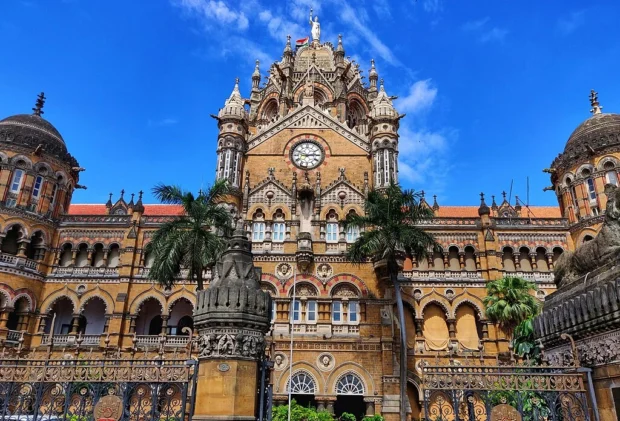
Flavors That Speak Loudly of the City
Walking through Mumbai, the smells of food are a constant invitation. In the lively district of Colaba, street stalls whip up vada pav, often called the city’s favorite snack. This simple sandwich, made with spicy potato fried in a chickpea flour batter and placed inside a soft bun, is a quick energy boost for busy Mumbaikars (Mumbai residents). Each bite tells a story of everyday life and flavor innovation.
For something richer, head to Crawford Market area where you can try pav bhaji. This dish is a thick vegetable curry served with buttered bread. The market around it adds a special atmosphere – vendors shouting prices in Marathi, the local language, while shoppers haggle gently. It’s a vibrant scene where culture and cuisine meet.
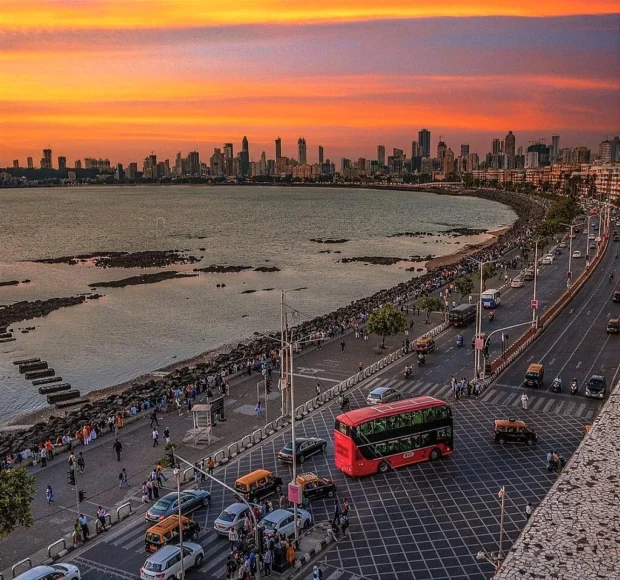
Seafood lovers will find delight in the Fish Market near Sassoon Dock, where the catch is fresh every morning. Marathi fishermen unload their boats and local chefs prepare dishes bursting with coastal flavors. Try the spicy fish curry or tandoori prawns, and you taste more than just food; you taste a connection to Mumbai’s seaside soul.
Moving Around: Getting Close to the City
Getting from Chhatrapati Shivaji Maharaj International Airport to the city center is smooth with the Mumbai local train and bus services. The suburban trains, though crowded, are a lifeline for many, offering a genuine local experience. Watching the different faces on the train can be like viewing a moving documentary of Mumbai’s people.
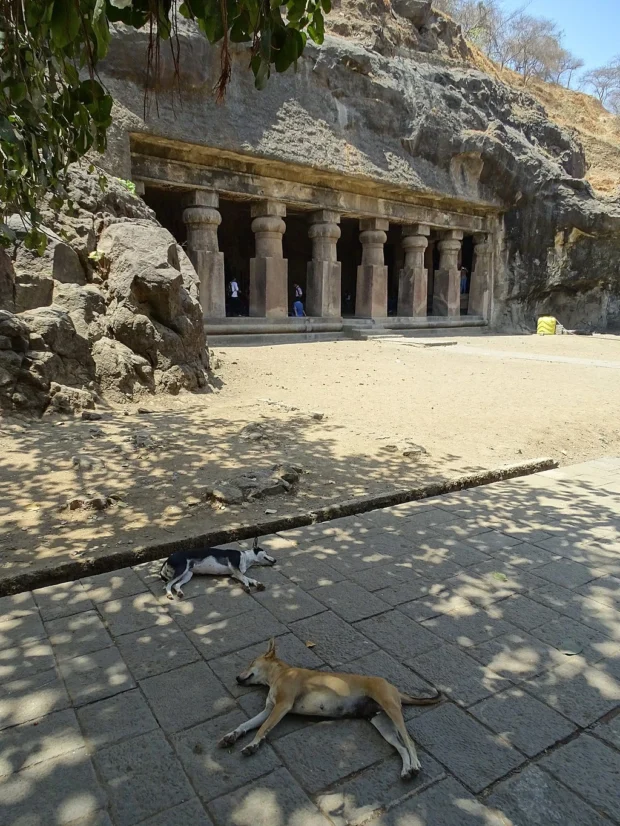
Auto-rickshaws (three-wheeled vehicles) are a popular way to get around shorter distances. Before hopping in, remember to ask politely for the fare. Saying “Kitna hai?” (How much is it?) can help you understand the charge. Also, Mumbai’s local buses reach places not covered by trains, making the public transport system rich and varied. Try to avoid the rush hours between 8-10 AM and 5-7 PM to avoid the tightest crowds.
Local Customs and Etiquette Worth Knowing
While Mumbai feels very modern, respecting local customs adds warmth to every interaction. Always greet with a gentle “Namaste” (pronounced nah-mah-stay), folding your hands together. This simple gesture goes beyond words, connecting you to the city’s kindness.
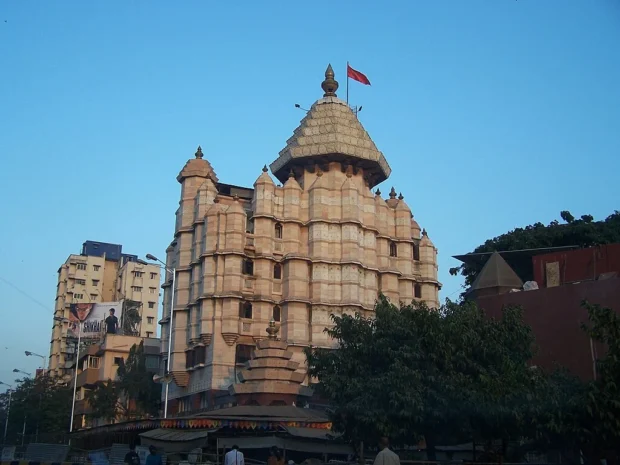
When visiting temples or homes, remove your shoes. It is a sign of respect. Mumbai people appreciate polite, calm behavior in public transport and markets. Loud arguments or public displays of anger are rare and frowned upon. In addition, as you taste street food or chat with vendors, a smile and a “Dhanyavaad” (thank you) will open many doors.
Evening Moments and Quiet Corners
By night, Mumbai wears a different face. Marine Drive, also called the Queen’s Necklace, is a favorite spot. Walking along the curved promenade with the city’s lights sparkling like jewels against the dark sea is a gentle end to a busy day. Families, couples, and friends gather here, sharing snacks or simply watching the waves. The cool breeze carries the scent of salty water and roasted corn from street stalls.
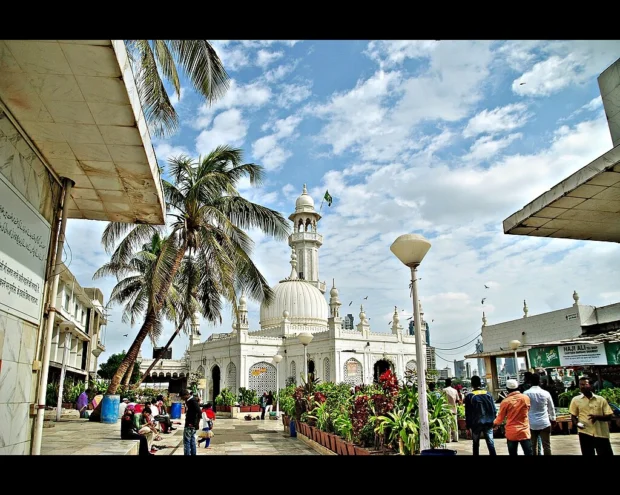
For quieter moments, the Jehangir Art Gallery hosts exhibitions where local artists display their works. It’s a small sanctuary away from the city’s din, offering time to reflect and breathe. Meeting artists here felt like stepping into a creative heartbeat, where the city’s stories take colors and shapes on canvas.
Where to Stay for a Genuine Feel
Choosing a place to stay in Mumbai depends on what you want to feel. South Mumbai offers colonial charm close to many landmarks, with old buildings and narrow alleys. Areas like Fort or Colaba keep you near the historic center and bustling markets. If you prefer a quieter area, neighborhood like Bandra mixes old and new, with cafes and street art decorating its streets.
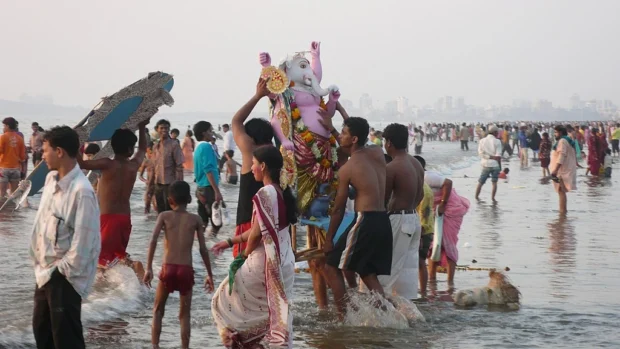
Guesthouses and small inns in these areas welcome visitors with warm hospitality. Staying in a homestay or a local apartment lets you see daily life up close – neighbours chatting on balconies, the smell of fresh chai (tea) drifting through open windows, and children playing cricket in narrow lanes.
Words That Connect: Simple Marathi Phrases
Speaking a few words in Marathi, the local language, often brings smiles and makes conversations smoother. Here are some phrases that you can use:
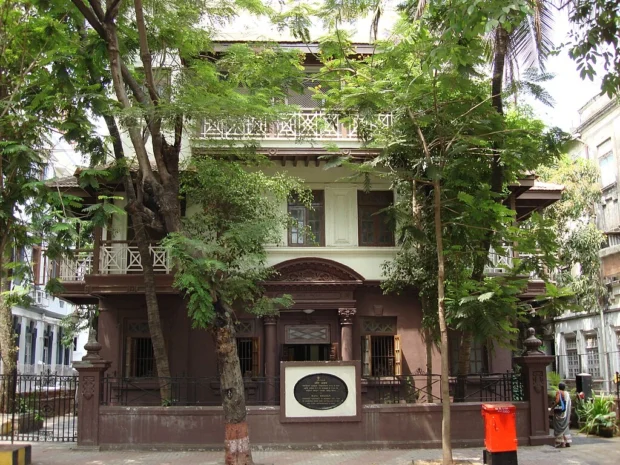
- Namaste – Hello, respectful greeting.
- Kitna hai? – How much is it? (useful in markets or auto-rickshaws)
- Dhanyavaad – Thank you.
- Ho – Yes (very common in everyday talk).
Using these words shows respect and interest in the local culture, often leading to friendly exchanges and helpful tips from the people you meet.
Walking through Mumbai India feels like flipping through a living photo album – every face, every building, every street corner holds a story waiting for quiet attention. The city invites you not just to see but to feel its pulse, to taste its flavors, and to listen to its whispers. Whether in the busy markets, silent temples, or the glowing night by the sea, Mumbai stays with you, slowly becoming a part of your own story.
To continue your journey through India, see how Delhi’s vibrant history and bold flavors paint a different yet connected picture of city life in India in Delhi India with History Food and Culture.
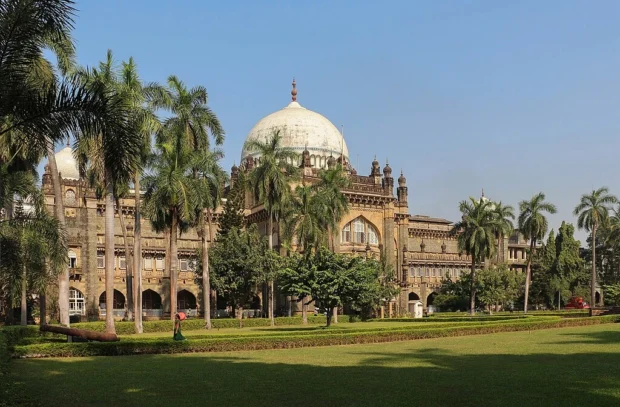

Photographer and writer capturing life through people’s stories and candid street moments.
- Marine Lines Mumbai 2021 by Dr Vikramjit Kakati on Wikimedia Commons – cc by-sa 4.0
- Gateway of India, Mumbai, Maharashtra by Drashti Nazarr on Wikimedia Commons – cc by-sa 3.0
- Chatrapati Shivaji Maharaj terminus. Mumbai. Maharashtra by Samratvikas on Wikimedia Commons – cc by-sa 4.0
- Marine Drive Skyline by Itzashwini on Wikimedia Commons – cc by-sa 4.0
- Cave Scene with Dogs Snoozing – Elephanta Caves – Elephanta Island – Mumbai – Maharashtra – India (26409412675) by Adam Jones from Kelowna, BC, Canada on Wikimedia Commons – cc by-sa 2.0
- Haji Ali Dargah mosque by Sabyasachi.baldev on Wikimedia Commons – cc by-sa 4.0
- Mumbai.in Juhu Durga Puja – panoramio by SINHA on Wikimedia Commons – cc by-sa 3.0
- Mani Bhavan – Gandhi's house in Mumbai by Jorge Láscar on Wikimedia Commons – cc by-sa 2.0
- Prince of Wales Museum, Mumbai 01 by Bernard Gagnon on Wikimedia Commons – cc by-sa 4.0
